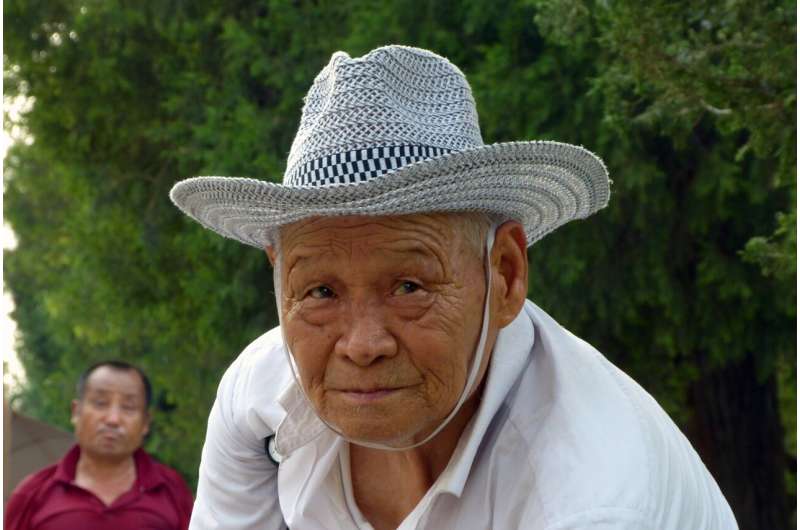This article has been reviewed according to Science X's editorial process and policies. Editors have highlighted the following attributes while ensuring the content's credibility:
fact-checked
peer-reviewed publication
trusted source
proofread
Risk genes related to Alzheimer's disease in a rural Chinese population

In a study recently published in Alzheimer's & Dementia, researchers at Karolinska Institutet and Shandong Provincial University have reported the polygenic risk scores (PRS) with and without apolipoprotein E (APOE) gene that were associated both cross-sectionally and longitudinally with around double risk of Alzheimer's disease. Moreover, the PRS, in combination with age, sex, and education, showed good discriminative and predictive accuracies for Alzheimer's disease.
This is the first study to examine the PRS with and without APOE gene in association with Alzheimer's disease and related plasma biomarkers among a general population in China. The PRS provides personalized disease risk information, which may encourage the adoption of healthy lifestyles to counteract genetic risk of the disease.
"The study also reveals potentially differential mechanisms linking PRS without and with APOE gene with Alzheimer's disease risk," says corresponding author Chengxuan Qiu, Senior Lecturer and researcher at the Aging Research Center, a division at the Department of Neurobiology, Care Sciences and Society at Karolinska Institutet.
In addition, this study engaged rural older adults in China, a sociodemographic group that is disproportionately affected by dementia and has been substantially underrepresented in Alzheimer's research. Thus, the research findings will bridge the knowledge gaps across the ethnically, socio-demographically, and geographically diverse populations.
The study included 4,873 Chinese older adults who were living in rural communities. The researchers measured 53 genetic variants (or single nucleotide polymorphisms, SNPs) for Alzheimer's disease that have been reported in the literature and participants were examined in 2014 and survivors were followed in 2018 to diagnose Alzheimer's disease.
The next step will be to further characterize structural brain imaging profile and peripheral biomarker profile (e.g., phosphorylated tau, brain-derived tau, and GFAP) associated with PRS without and with APOE gene. This is highly relevant for further understanding mechanisms linking PRS with Alzheimer's disease.
"Furthermore, we will examine the potential modifying effect of environmental factors (e.g., optimal cardiovascular health metrics and cognitive reserve factors) on cognitive phenotypes (e.g., AD and cognitive decline) associated with PRS," says Qiu.
This will have significant implications for preventive interventions of dementia and cognitive decline among high-risk populations.
More information: Tingting Hou et al, Association of polygenic risk scores with Alzheimer's disease and plasma biomarkers among Chinese older adults: A community‐based study, Alzheimer's & Dementia (2024). DOI: 10.1002/alz.13924




















